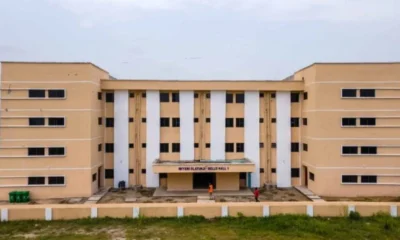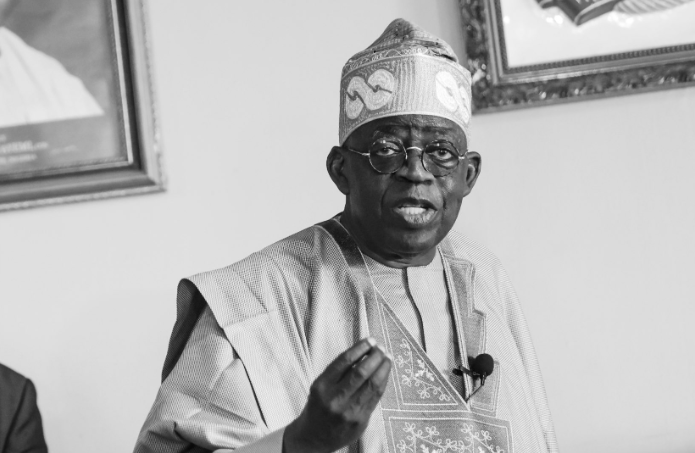Barring any last-minute changes, workers in the Federal Capital Territory (FCT), Cross River, Nasarawa, Ebonyi, Kaduna, and Zamfara states may begin a strike on Monday (today) due to the failure of state authorities to negotiate the payment of the N70,000 new minimum wage.
Although implementation panels set up by the affected states have been meeting with labour leaders in an attempt to avert the strike, various state chapters of the Nigeria Labour Congress (NLC) have indicated their readiness to proceed with the industrial action starting today.
The FCT Council of the NLC had previously instructed workers in the six Area Councils to begin an indefinite strike on December 1, pending further instructions.
This was outlined in a letter signed by the Chairman of the FCT Council of the NLC, Stephen Knabayi, on Saturday.
The strike follows a directive from the NLC leadership for workers in 14 states and the FCT to take industrial action starting Sunday over the non-implementation of the new minimum wage.
Knabayi faulted the failure of the area council chairmen to respond to the demand for the implementation of the minimum wage, despite receiving the communique of the National Executive Council of the NLC dated November 14, 2024.
The Nasarawa State chapter of the NLC on Sunday declared its readiness to declare a strike if the minimum wage was not paid.
The state NLC Chairman, Ismaila Okoh, disclosed that a notice of strike had been issued to all the labour members.
He, however, revealed that the Nasarawa State government had reached an agreement with the union to pay N70,500 to the workers, adding that no document had been signed regarding the implementation.
He said, “We have notified all our members to embark on strike tomorrow (today) because of the non-implementation of the national minimum wage in the state.
“Although the minimum wage committee set up by the state government has agreed to start paying N70,500, no document has been signed to that effect up till this moment.
“So, we are observing the situation to see if the documents on the minimum wage will be signed before tomorrow morning. However, if nothing is done between now and midnight, our members will have to fully comply with the strike as they were directed.”
To avert a shutdown, the Kaduna State Government said it had commenced the implementation of the new national minimum wage, with the least-paid worker in the state receiving N72,000 as gross salary in November.
Many states agreed to pay above the N70,000 minimum wage, with Kaduna State offering its workers N72,000 as minimum wage.
Despite the positive development, the state chapter of the NLC confirmed its planned strike.
The state’s chairman of the NLC, Ayuba Suleiman, said the workers would embark on a strike as directed by the NLC leadership.
When asked if the NLC was prepared to embark on a strike, Suleiman replied, “Yes, we are set for the strike.”
However, a statement on Sunday by Ibraheem Musa, the Chief Press Secretary to Governor Uba Sani, insisted it was “a misrepresentation for the NLC to claim that the state has defaulted in the payment of the new minimum wage.”
Musa noted that the state government had complied with the letter of the National Minimum Wage Law.
“His Excellency, the Executive Governor of Kaduna State, Senator Uba Sani, has complied with the spirit and letter of the National Minimum Wage Law, by paying the lowest paid civil servant N72,000 last month,” he said.
He added that the NLC had been pushing for consequential adjustments but the state government argued that there was a difference between salary increments and the minimum wage.
Musa explained that the state government received an average of N8bn from the Federal Allocation and generated around N4bn monthly, totalling N12bn revenue.
However, he said with the implementation of the minimum wage, the monthly wage bill had increased from N5.4bn to N6.3bn, including N4bn deduction for loan payments every month.
This, he said, left only N2bn for rural transformation, healthcare, education, and other public services in the state.
“It will be unfair for Kaduna State Government to spend almost all its revenue on consequential adjustments, after paying the mandatory minimum wage.
“There are over 10 million people who are also entitled to the accrued revenue of Kaduna State. There are 84,827 civil servants in the state. So, it is unreasonable for the government to spend over 90 per cent of its revenue on just about one per cent of the population,” he added.
Musa urged the NLC to exercise patience over the consequential adjustments, pending when the state government’s revenue improved.
“Governor Uba Sani is labour-friendly. He has demonstrated this by providing buses for civil servants to commute to work free of charge, as part of the palliatives to cushion the prevailing economic challenges,” he said.
Meanwhile, the Chairman of the NLC in Ebonyi State, Dr Oguguo Egwu, disclosed that the state workers had been directed to join the ongoing industrial action from today.
According to him, the warning strike, which will last one week, was sequel to the failure of Governor Francis Nwifuru to implement the new national minimum wage.
He said, “Talking about the new national minimum wage as it concerns Ebonyi State, our governor on September 11 at the Ojiji festival of Izzi Kingdom announced the new minimum wage of N70,000 and we are all aware of that.
“We were very happy and excited that Ebonyi would be among the first states to implement the wage. But subsequently, there was no communication and no information.
“And we heard that the governor wanted to implement the national minimum wage without any due process of collective bargaining where both the workers and government angle would meet to agree on the consequential adjustment.”
Also, the Zamfara State NLC secretary, Ahmed Abubakar, said workers in the state had yet to receive the new minimum wage, and as such had no alternative but to join the strike.
He said, “We are going to join the strike as directed by the national body of our great union to express our anger over the non-payment of the new minimum wage.”
Abubakar, however, explained that the union would continue to dialogue with the state government on the issue.
The organised labour in Cross River is set for an industrial action over the non-implementation of the new minimum wage in the state.
The Cross River State Chairman of the Nigeria Labour Congress (NLC), Gregory Ulayi, disclosed that the union would embark on an indefinite strike if the state government failed to implement the new minimum wage to workers.
However, it was learnt that the state government reached an agreement with the state chapters of the NLC and TUC late on Sunday night to pay the N70,000 wage to its workers.
Calls to the NLC and TUC officials to clarify whether the state workers would still embark on strike were not answered as at the time of filing this report.
Credit: The Punch

 BIG STORY2 days ago
BIG STORY2 days ago
 BIG STORY4 days ago
BIG STORY4 days ago
 BIG STORY3 days ago
BIG STORY3 days ago
 BIG STORY5 days ago
BIG STORY5 days ago
 BIG STORY2 days ago
BIG STORY2 days ago
 BIG STORY3 days ago
BIG STORY3 days ago
 BIG STORY4 days ago
BIG STORY4 days ago
 BIG STORY4 days ago
BIG STORY4 days ago






















